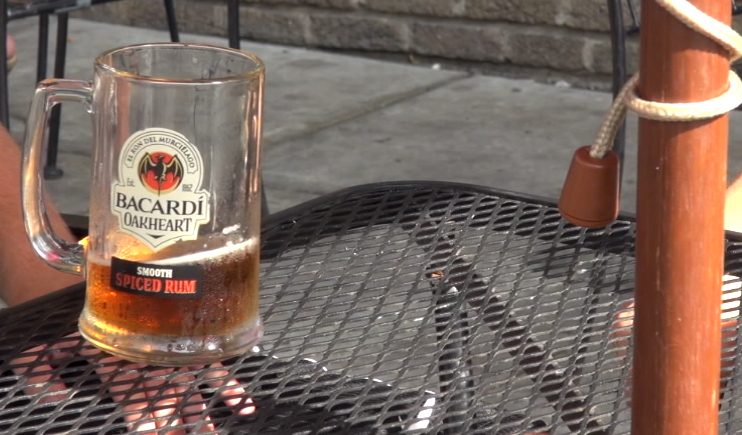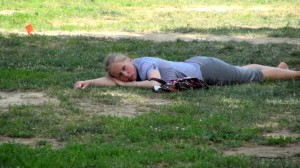WASHINGTON – Summer is barbecue, festival and beach season, but that fun in the sun can have some consequences.
According to the National Weather Service, heat is one of the leaders in weather-related deaths in the United States.
“Heat impacts health more than any other environmental factor, more than hurricanes, tornadoes. It’s the worst,” said Laurence Kalkstein, a research professor of bioclimatology and public health sciences at University of Miami.
But, unlike a tornado, it’s difficult to see the aftermath of a hot day.
“The heat is the only one that doesn’t leave any damage after everything is done,” Kalkstein said. “So people underestimate the impact of heat.”
Variations in weather, and three or four consecutive days of more intense heat, are expected during climate change, he said. Variations in weather and heat waves can lead to heat emergencies, doctors said.
“During the extreme heat people are more vulnerable to having some of these heat emergencies take effect,” said Dr. Joel Buzy, an emergency medicine physician at Shady Grove Adventist Hospital.
Vulnerability to heat emergencies increase when heat is mixed with alcohol. People should keep heat illnesses in the back of their minds when they reach for their favorite cocktail, said Dr. Bill Frohna, chair of emergency medicine at MedStar Washington Hospital Center.
“It’s very important – especially for young people, who may have more of a chance to socialize, whether it’s with alcohol or with other substances, just to keep in mind that those are also a risk for heat injury” Frohna said.
The National Institutes of Health warns that drinking alcoholic beverages can increase the risks of hyperthermia – heat-related illness caused by abnormally high body temperatures.
“Alcohol has various effects on the body, one of which is dehydration. And that’s the last thing you want when you’re overheated,” said Dr. Basil Eldadah from the National Institute on Aging.
Alcohol dehydrates the body by reducing the fluid in the body, making it hard to generate sweat.
“You’re at risk from having lost one of your main mechanisms for cooling and that’s perspiration,” Frohna said.
It’s not just about making sure to stay hydrated during the day in the heat, people also need to plan ahead.
“People get dehydrated from drinking the night before, not realize that’s taken effect and then behave like they usually would in the heat. And, that heat can affect them worse because they are already starting off dehydrated,” said Dr. Joel Buzy, an emergency room physician at Shady Grove Adventist Hospital.
Dehydration is not the only thing people should look out for in the heat. Other symptoms of over-heating include: nausea, feeling faint, heat rash and cramping. It’s important to look out for these signs in the heat to avoid heat exhaustion developing into heat-stroke, which can be life-threatening, doctors said.
“When it starts getting to the emergency level is when the person starts becoming impaired, when someone is feeling so exhausted that they can no longer move or function properly,” Buzy said. In those situations people should seek medical attention, he said.
One issue with drinking is impairment, which doctors say can cause people to miss warning signs.
“You drink and you say, ‘Boy I don’t feel so bad,’” Frohna said. “You don’t put two and two together and it’s sometimes too late, and then you’re in the midst of having heat injury or heat illness.”
A few other factors that doctors say people should be aware of are that alcohol slow the heart rate and dilates blood vessels, meaning people can get flushed and can expose blood to heat.
“It has a depressant effect on heart rate,” Eldadah said. “When people are challenged by the heat the heart needs to speed up to compensate.”
None of this means people can’t have a good time.
“It’s just being cautious, being careful, moderation, and making sure that you have other fluids that don’t dehydrate you that keep you cool,” Frohna said.
During heat waves and extreme heat conditions – skip the alcohol entirely, he said.
“Just completely avoid, even those substances or beverages, which are legal, just avoid,” Frohna said. “That’s the smart thing. Play it safe.”
In normal heat conditions, look for ways to prevent heat-related issues, like moderation, doctors said.
“Prevention really is the key and I think it starts with pre-hydration before one is exposed to a lot of heat during the day,” Buzy said, adding people should wear light, loose fitting clothes, continue staying hydrated and avoid direct sunlight.



